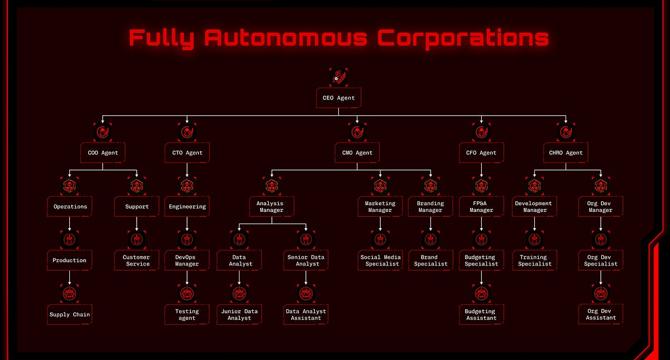Medium
2w
313

Image Credit: Medium
The Rise of Autonomous Corporations: How Agent Swarms Will Transform the Global Economy
- The rise of autonomous corporations, operated by swarms of AI agents, is poised to reshape the global economy by transforming the concept of corporations themselves.
- Technological advancements like the Swarms framework enable the creation of autonomous corporations that can function independently, make strategic decisions, and interact with markets without human intervention.
- By 2035, autonomous corporations are projected to become a dominant business entity globally, surpassing traditional corporations in number and efficiency.
- The proliferation of autonomous corporations will impact global economic structures, competitive dynamics, employment patterns, and wealth creation.
- Technological capabilities like the Swarms framework support hierarchical structures, parallel processing, sequential workflows, and dynamic agent rearrangement crucial for autonomous corporations.
- Autonomous corporations are expected to bring unprecedented gains in economic efficiency, leading to significant productivity improvements and market transformation by 2040.
- The democratization of autonomous corporation technology will democratize entrepreneurship and trigger a surge in autonomous corporation formation by 2040.
- The transformation brought by autonomous corporations will affect various industries, including software development, financial services, e-commerce, professional services, manufacturing, logistics, and healthcare.
- The new economic order created by autonomous corporations will be characterized by increased productivity, rapid innovation, winner-take-most dynamics, and a shift in human economic participation models.
- Challenges such as regulatory frameworks, taxation, governance, and human-technology collaboration will need to be addressed to ensure the successful integration of autonomous corporations into the global economy.
Read Full Article
18 Likes
For uninterrupted reading, download the app